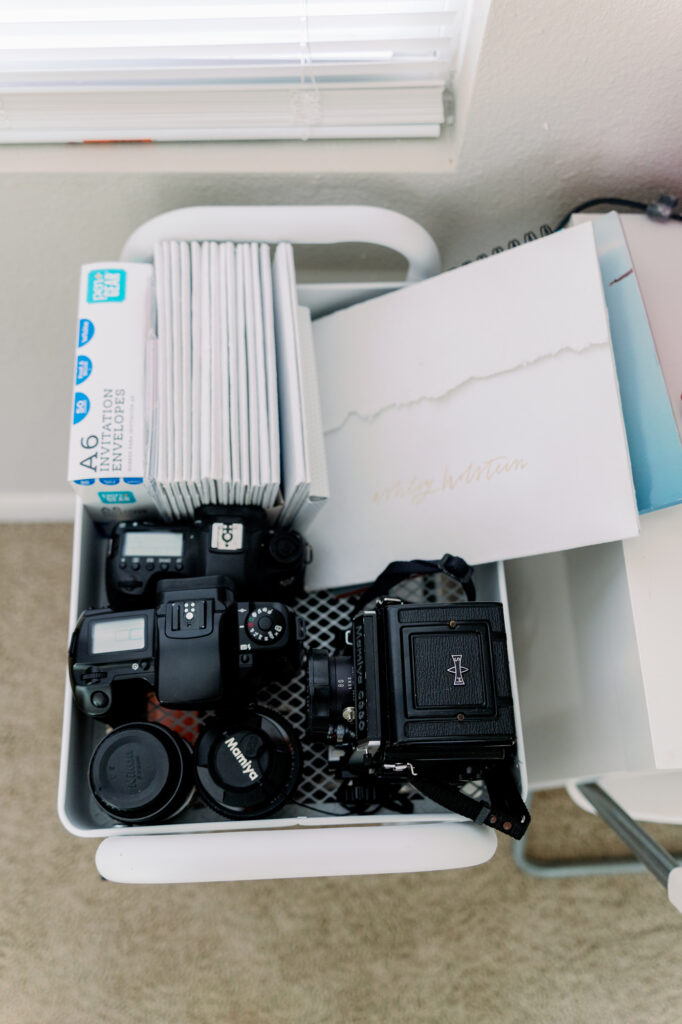Photography by Daniel Barceló & Ashley Holstein
Entrepreneurship has taken a new, innovative form in the world of freelancing and contract work. From its flexibility to its motivation to run a business from home, the industry is filled with opportunities to grow as an entrepreneur. Hear personal stories from local freelancers as they share how they chose the life of full-time freelance/contract work instead of the traditional 9-to-5.
I remember being a local college student at Southeastern University and completely inspired by the entrepreneurial spirit I found within the Lakeland community. At the time, everyone I looked up to within the city was hustling to launch and grow their business with a passion for thinking outside of the box. Growing up, there was always this pressure to succumb to the societal “norm” –– to look for that 9-to-5 career that would define the trajectory of my life. But, when I stepped into college, I was introduced to this idea of freelancing and contract working –– an incredibly fascinating way to work that seemed to offer all the flexibility in the world.

ENTREPRENEURSHIP IN LAKELAND
If anyone knows anything about Lakeland, it’s that our tight-knit community is a prime hub for this type of progressive career. We’re surrounded by high-level innovators, dreamers, and doers that have stepped outside of the normal corporate chain to pursue a position they’ve written their job description for. Freelancing and contract working goes beyond the status quo, and it is challenging the next generation with a new way of building a professional career.
With coworking spaces, such as Catapult Lakeland, becoming the new allure, more and more graduates are striking up interest in the contract work/freelance world.

Freelance web developer and eCommerce consultant Paul Arbuthnot has created a work-space in his home to ensure high-productivity and inspiration.
DEFINING FREELANCE WORK
According to the well-known hiring network Indeed, a freelancer works as “a non-permanent, self-employed worker who provides products and services to multiple organizations.” From working at the location of their choice to choosing the amount of projects they accept, freelancers operate on terms and conditions they’ve set for themselves allowing so much room for flexibility.
 Freelancers oftentimes take on a lot of “one-off” jobs that don’t necessarily require long-term commitment between their clients and them. Freelancers have a bit more control than contract workers do when it comes to their schedule and terms of agreement.
Freelancers oftentimes take on a lot of “one-off” jobs that don’t necessarily require long-term commitment between their clients and them. Freelancers have a bit more control than contract workers do when it comes to their schedule and terms of agreement.
FREELANCE WORK VS. CONTRACT WORK
When it comes to contract work, Indeed also defines independent contractors as “temporary employees who may work for many clients at once.” Contract workers take on projects that are larger in nature and more long-term with their clients. They are more intentional about taking on fewer projects in order to sustain the long-term relationship with their clients. Contract workers usually get hired by clients who have certain criteria they’re looking for which can minimize their flexibility.

Family is a priority to local photographer Ashley Holstein, and she has found freedom in limiting the amount of work she takes on.
LOCAL FREELANCERS AND CONTRACT WORKERS
Every freelancer and contract worker has had to take risks to establish themselves within the industry. Local fine art photographer and Lakeland mother Ashley Holstein has served the Central Florida area by capturing weddings, family sessions, and other special occasions for the last five years.
“It’s crazy to think about, because I never wanted to do this full-time,” Holstein says. “I thought I would get burnt out.”
Having worked full-time at Concord Coffee before taking the leap of faith towards working full-time as a freelance photographer, it was a step she recalls as a huge risk worth taking.
“After my husband and I both quit our daytime jobs, I was determined to start my photography business. I invested in mentors who helped me think through strategy and preparation to become an entrepreneur.”
“The key to freelancing is remembering you still have to work hard for the freedom that can come with it.” – Paul Arbuthnot
In retrospect of the last five years, Holstein has photographed countless weddings across the United States and is now balancing her freelance work with her latest and most important role: being a mother. “Priority will always be my family, [which is] why I have a limit with how many clients [I choose] to take on,” she says.
Flexibility has been a huge component of why Holstein loves what she does.
THE RISK WORTH TAKING
Tina Sargeant, local wedding and food photographer, started her photography business in 2007 before eventually launching a local photography studio in Lakeland, known as Refine Studio.
“At the time, I wasn’t sure if it would support itself even if I rented it out to other photographers. Now, it has been such a benefit in growing my own career in commercial photography, and it has been a joy to watch as the studio helps others to launch and grow their careers,” Sargeant says.

When it comes to choosing between the unpredictable path of freelance/contract work and choosing to work a traditional 9-to-5 job, she wouldn’t have had it any other way. “Every day, I get to be the one to rock my baby to sleep for her nap and pick up my big kids from school in the afternoon. I would have a hard time giving up that flexibility.”
 EVERYTHING COSTS SOMETHING
EVERYTHING COSTS SOMETHING
In addition to flexibility, the field of freelancing and contract work beckons entrepreneurs to further develop their professional skill set. To freelance web developer and eCommerce consultant Paul Arbuthnot, flexibility doesn’t minimize the hustle or ability to perform at a high-level.
“The key to freelancing is remembering you still have to work hard for the freedom that can come with it,” he says. “It’s such a great feeling to see doors open and realize there’s no ceiling to being self-employed. It all just depends on what you want out of it and what you put in.”
“I invested in mentors who helped me think through strategy and preparation to become an entrepreneur.” – Ashley Holstein
When it comes to increasing capacity as a freelance professional, Arbuthnot extols the importance of self-development. “[My field] is constantly evolving. I make it a habit to read articles often, listen to podcasts, and play around with new tech whenever I can. I’m always learning new and exciting things in this industry.”
The fast-paced, competitive world of freelance and contract work is by no means going anywhere. “There are 57 million freelancers in the US,” (99 Firms). Millennials and Generation Z will continue to only increase this number as more dreamers are turning their passions into their careers, their crafts into their businesses, and their visions into reality.

